Navigating the world of catering equipment can be a daunting task, especially when considering the significant investment required for a large-scale purchase. But what if we told you that there’s a strategic approach that not only saves you money but also streamlines your operations? Enter bulk purchasing, a tactic that’s gaining traction among savvy business owners looking to optimize their catering equipment investments. Let’s delve into the nuances of this cost-effective strategy and uncover why it’s becoming a smart move for businesses of all sizes.
The Advantages of Bulk Purchasing Catering Equipment
Bulk purchasing catering equipment can offer a multitude of advantages that can significantly impact your business’s efficiency and profitability. Here’s a closer look at some of the key benefits:
-
Cost Savings: One of the most immediate advantages of buying catering equipment in bulk is the potential for substantial cost savings. Suppliers often provide discounts for larger orders, which can translate into significant savings over the long term. This is because manufacturers can offer lower prices when they know they have a guaranteed sale for a larger quantity.
-
Enhanced Negotiation Power: When you’re purchasing in bulk, you have more leverage in negotiations. Suppliers are more likely to offer better terms, including lower prices, extended payment plans, or even free shipping. This can be particularly beneficial for small businesses that may not have the same buying power as larger corporations.
-
Streamlined Inventory Management: Having a large inventory of catering equipment can help streamline your inventory management process. With a bulk purchase, you can ensure that you have the right equipment on hand at all times, reducing the need for frequent restocking and the potential for stockouts.
-
Consistency in Quality: When you buy in bulk from a reputable supplier, you can expect consistency in the quality of the equipment. This is especially important in the catering industry where reliable and durable equipment is crucial for maintaining service quality and customer satisfaction.
-
Long-Term Investment: Purchasing catering equipment in bulk can be seen as a long-term investment. High-quality equipment that is bought at a discounted rate can last for years, reducing the frequency of replacements and the associated costs.
-
Improved Efficiency: With a comprehensive inventory of catering equipment, you can optimize your workflow. Having the right tools and appliances at your disposal can lead to faster preparation times, reduced downtime, and ultimately, improved efficiency in your operations.
-
Enhanced Brand Image: High-quality catering equipment can enhance the image of your brand. When customers see that you’re investing in top-notch equipment, it can create a perception of professionalism and reliability, which can be a major selling point in the competitive catering industry.
-
Flexibility in Expansion: If your business is growing or you’re planning to expand your services, having a bulk purchase of catering equipment can provide you with the flexibility to scale up quickly. You won’t need to wait for new equipment to be ordered and delivered, which can be a critical factor in meeting increased demand.
-
Reduced Maintenance Costs: Investing in bulk can also lead to lower maintenance costs. High-quality equipment is less likely to break down, which means fewer repairs and less frequent service calls. This can save you both time and money in the long run.
-
Access to Exclusive Deals: Bulk purchasers often have access to exclusive deals and promotions that are not available to those buying smaller quantities. This can include special discounts on additional items or even the opportunity to purchase equipment that is not typically available to the general public.
-
Increased Profit Margins: With the cost savings from bulk purchasing, you can potentially increase your profit margins. This extra capital can be reinvested back into your business, used for marketing, or simply kept as additional income.
-
Enhanced Customer Experience: Having the right equipment can lead to a better customer experience. Whether it’s faster service, more variety in your offerings, or simply a more polished presentation, the right catering equipment can make a significant difference in how your customers perceive your business.
In conclusion, bulk purchasing catering equipment offers a range of benefits that can positively impact your business. From immediate cost savings to long-term investment and improved efficiency, it’s a strategy that can pay off in many ways for caterers looking to optimize their operations and enhance their bottom line.
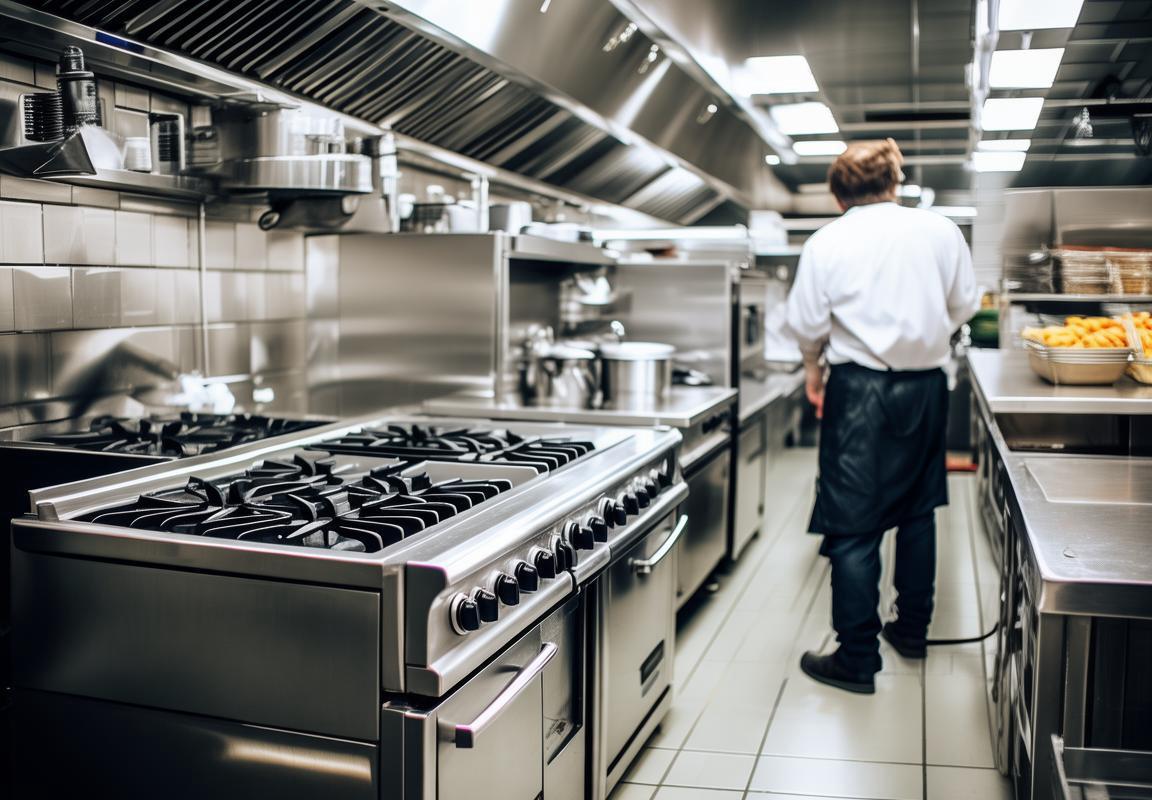
Identifying Your Needs: What to Look for in Catering Equipment
Understanding your catering business’s unique needs is pivotal when considering a bulk purchase of equipment. Here are several key factors to consider when assessing what type of catering equipment you should invest in:
Menu DiversityThe variety of dishes you offer plays a significant role in determining the equipment you’ll need. For instance, if your menu is heavily dependent on grilling, you’ll require high-quality grills and tongs. Conversely, if you specialize in pasta, a pasta machine and a steamer may be at the top of your list. Consider the range of food items you prepare and select equipment that caters to these needs.
Cooking MethodsDifferent cooking techniques demand different types of equipment. If you’re into baking, an oven with precise temperature controls is essential. For frying, you’ll need a commercial fryer that can handle the volume of food you serve. Identifying the primary cooking methods used in your kitchen helps narrow down the equipment that will serve you best.
Space ConstraintsThe physical space available in your kitchen will dictate the size and type of equipment you can purchase. Consider whether you have ample counter space for a large prep table or if you’ll need compact, multi-functional appliances. Efficient use of space not only improves workflow but also ensures that you don’t invest in equipment that doesn’t fit within your operational constraints.
Quality and DurabilityInvesting in quality equipment is a long-term decision. Look for equipment made from durable materials that can withstand frequent use and cleaning. Commercial-grade appliances are built to last and can handle the rigorous demands of a catering environment. Don’t compromise on quality; it will save you money in the long run by reducing the frequency of repairs and replacements.
Energy EfficiencyAs sustainability becomes more of a priority, energy-efficient catering equipment can help reduce your operational costs. Look for appliances with Energy Star ratings or those that have features that minimize energy consumption. This not only benefits the environment but also contributes to a healthier bottom line.
Ease of UseCatering staff should be able to operate the equipment with ease to maintain productivity. Complex machinery might require extensive training, which could slow down your operation. Opt for user-friendly equipment that your staff can quickly master, reducing the learning curve and increasing efficiency.
Maintenance RequirementsRegular maintenance is crucial for the longevity of your catering equipment. Research the maintenance requirements for the equipment you’re considering. Some items may require more frequent cleaning or specific maintenance schedules, which can impact your staff’s workload and operational efficiency.
Brand ReputationReputable brands often provide reliable products with solid warranties and customer service. Before making a bulk purchase, look into the reputation of the equipment manufacturers. Online reviews, industry recommendations, and personal experiences can all provide valuable insights into the reliability of the equipment.
ScalabilityYour catering business may grow over time, so it’s wise to consider the scalability of your equipment purchase. Ensure that the equipment you buy today can accommodate an increase in business volume without the need for a complete overhaul of your kitchen setup.
Budget ConsiderationsWhile it’s tempting to go for the cheapest option, the cheapest isn’t always the best. Determine a budget that reflects your long-term investment and the value you place on quality and efficiency. Remember, paying a bit more upfront can save you money in the long term by reducing downtime and maintenance costs.
Special FeaturesSome catering equipment comes with special features that can add value to your operation. For example, a steamer with a precise timer can improve consistency in your cooking, or a refrigerator with adjustable shelves can maximize storage efficiency. Identify if any of these features would be beneficial for your specific needs.
Safety StandardsSafety should never be compromised. Ensure that the catering equipment you purchase complies with local health and safety regulations. Look for certifications that verify the safety of the equipment, such as CE marking or UL approval.
By carefully considering these factors, you can make informed decisions when it comes to selecting the right catering equipment for your business. This thoughtful approach will help you build a robust and efficient kitchen that can support the growth and success of your catering venture.
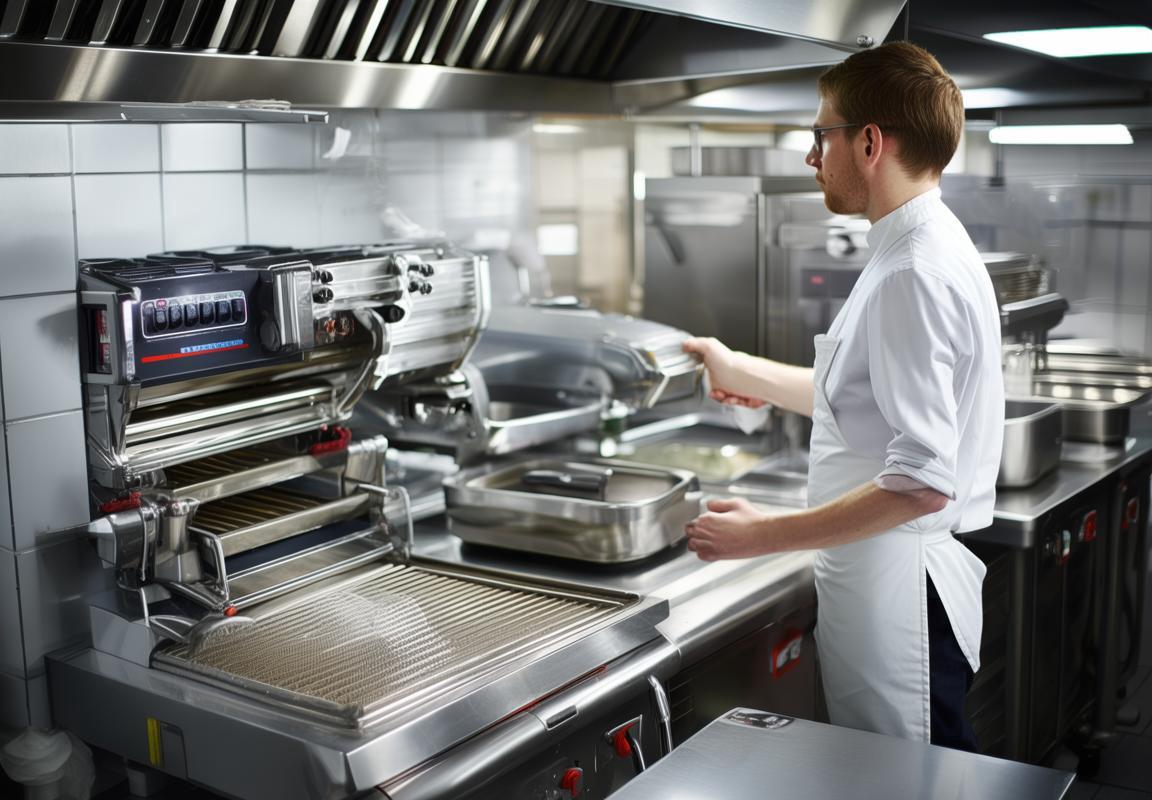
Finding the Right Supplier: Tips for Bulk Purchase Deals
Navigating the sea of catering equipment suppliers can be daunting, especially when considering a bulk purchase. Here are some key tips to help you find the right supplier for your needs:
-
Research Thoroughly: Before diving into bulk purchase deals, it’s crucial to conduct comprehensive research. Look for suppliers with a strong online presence, including a well-maintained website that showcases their products and services. Check for customer reviews and testimonials, which can provide valuable insights into the supplier’s reputation and customer satisfaction.
-
Assess Product Range and Quality: A reputable supplier will offer a diverse range of catering equipment, from commercial ovens and grills to dishwashers and refrigeration units. Ensure that the supplier’s catalog aligns with the types of equipment you need. Also, look for suppliers that prioritize quality and durability, as these are essential for the longevity of your equipment.
-
Consider After-Sales Support: When dealing with bulk purchases, the reliability of after-sales support becomes even more critical. A good supplier will offer comprehensive after-sales services, including installation assistance, maintenance contracts, and spare parts availability. Verify that the supplier has a dedicated support team ready to assist you should any issues arise.
-
Negotiate Pricing and Terms: Bulk purchases often come with the advantage of lower prices due to volume discounts. Don’t hesitate to negotiate with potential suppliers to secure the best deal. However, ensure that the pricing structure is transparent and that there are no hidden costs. Additionally, clarify the payment terms and any potential penalties for late payments.
-
Check for Compliance and Certifications: It’s essential to work with suppliers who comply with industry standards and regulations. Look for certifications such as CE marking, which indicates that the equipment meets European safety, health, and environmental protection requirements. This can be particularly important if you’re planning to export your products.
-
Visit Showrooms or Trade Fairs: If possible, visit the supplier’s physical location or attend trade shows to see the equipment in person. This hands-on experience can help you better understand the quality and functionality of the products. It also gives you an opportunity to meet the sales team and gauge their expertise.
-
Seek Recommendations and Referrals: Word-of-mouth can be a powerful tool. Ask colleagues, industry peers, or even competitors for recommendations on suppliers they’ve had positive experiences with. Personal referrals can save you time and help you avoid suppliers with poor reputations.
-
Evaluate the Supplier’s Financial Stability: A supplier’s financial health can impact your business, especially in the case of bulk purchases. Ensure that the supplier is financially stable and has a history of fulfilling orders on time. This can be done by checking their credit rating or asking for financial statements.
-
Understand Return Policies and Warranties: When making a bulk purchase, it’s important to know what happens if a product is defective or damaged. Understand the supplier’s return policy, including any restocking fees or time limits. Additionally, make sure the equipment comes with a robust warranty that covers both parts and labor.
-
Long-Term Relationships: Consider whether the supplier is interested in building a long-term relationship with you. A supplier that values your business may be more willing to offer ongoing support, special deals, and tailored solutions to meet your evolving needs.
By carefully considering these tips, you can find a supplier that not only meets your immediate bulk purchase needs but also supports your business’s growth and success in the long run.
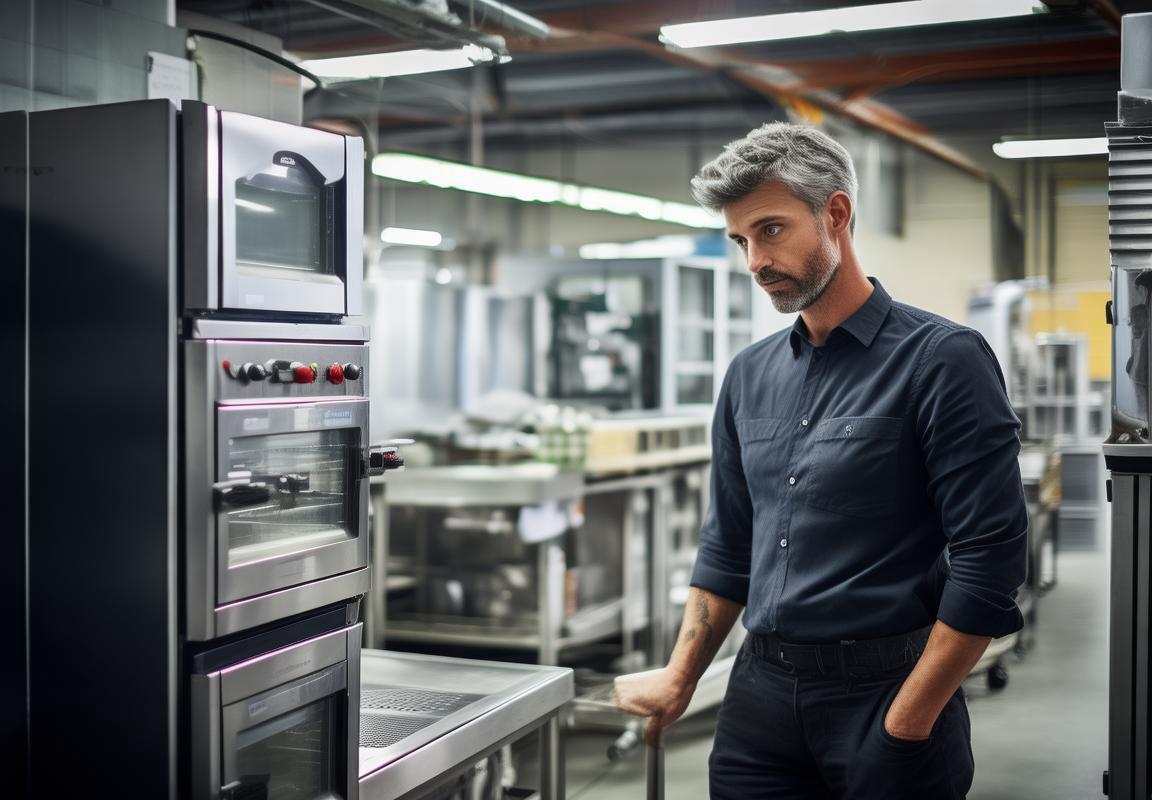
Budgeting and Cost-Saving Strategies
Navigating the world of bulk purchase deals can be daunting, especially when it comes to budgeting and cost-saving strategies. Whether you’re outfitting a new catering business or upgrading your current equipment, understanding how to manage your finances is crucial. Here are some strategies to help you save money while securing the catering equipment you need.
-
Research and Compare PricesBefore diving into bulk purchases, it’s essential to conduct thorough market research. Look for multiple suppliers and compare their prices for the same items. Don’t just go for the cheapest option; consider the reputation and reliability of the supplier. Sometimes, a slightly higher price can mean better quality and service.
-
Negotiate for DiscountsOnce you’ve identified a few potential suppliers, don’t be afraid to negotiate. Bulk purchases are a powerful tool in your arsenal, and suppliers are often willing to offer discounts to secure a large order. Highlight the volume of your purchase and ask for a volume discount or a special offer tailored to your needs.
-
Seasonal PurchasesTiming can be everything when it comes to cost savings. Some suppliers may offer better deals during off-peak seasons. Consider purchasing equipment when demand is low, such as towards the end of the year or during holidays. This can lead to significant discounts and better terms.
-
Leverage Long-Term ContractsIf you anticipate needing a steady supply of catering equipment over time, consider entering into a long-term contract with a supplier. This can often lead to volume discounts and predictable pricing, which can help you better forecast your budget and manage your cash flow.
-
Evaluate Your Needs CarefullyOver-purchasing can lead to unnecessary costs. Take a close look at your business’s needs and make sure you’re only buying what you truly require. This includes considering the size of your operation, the types of events you cater, and the lifespan of the equipment. Investing in quality items that will last longer can be more cost-effective in the long run.
-
Look for Used or Refurbished EquipmentBulk purchasing doesn’t always mean buying new. Sometimes, you can find great deals on used or refurbished catering equipment. These items may have been returned, but they are often still in excellent condition. Just make sure to inspect them thoroughly and check the warranty or return policy.
-
Consider Leasing OptionsInstead of buying, you might want to consider leasing certain types of equipment. Leasing can provide flexibility and can be a more affordable option, especially for equipment that you may not use frequently or that requires significant maintenance. Be sure to understand the terms of the lease, including any potential costs for early termination or upgrades.
-
Invest in Energy-Efficient EquipmentWhen purchasing new equipment, look for models that are energy-efficient. These can save you money on utility bills over time. While they might have a higher upfront cost, the long-term savings can be substantial.
-
Plan Your Inventory and MaintenanceA well-planned inventory can help you avoid unnecessary purchases. Keep track of your equipment usage and plan for regular maintenance to extend the life of your items. This proactive approach can prevent costly repairs and replacements.
-
Be Mindful of Shipping and Handling CostsWhen dealing with bulk purchases, shipping and handling can add up. Work with suppliers to understand all the costs associated with getting the equipment to your location. Sometimes, combining orders or choosing a supplier closer to your business can reduce these expenses.
-
Utilize Online Marketplaces and AuctionsDon’t overlook the potential savings from online marketplaces and auctions. These platforms can offer unique opportunities to find deals on bulk purchases. Just be cautious and verify the legitimacy of the sellers and the condition of the items.
-
Seek Advice from Industry ExpertsIf you’re unsure about how to budget for your catering equipment, consider consulting with industry experts. They can provide insights and recommendations based on their experience and can help you make more informed decisions.
By implementing these strategies, you can effectively manage your budget and secure the best possible deals on your catering equipment bulk purchases. Remember, careful planning and negotiation can lead to significant savings without compromising the quality of your equipment or the success of your business.
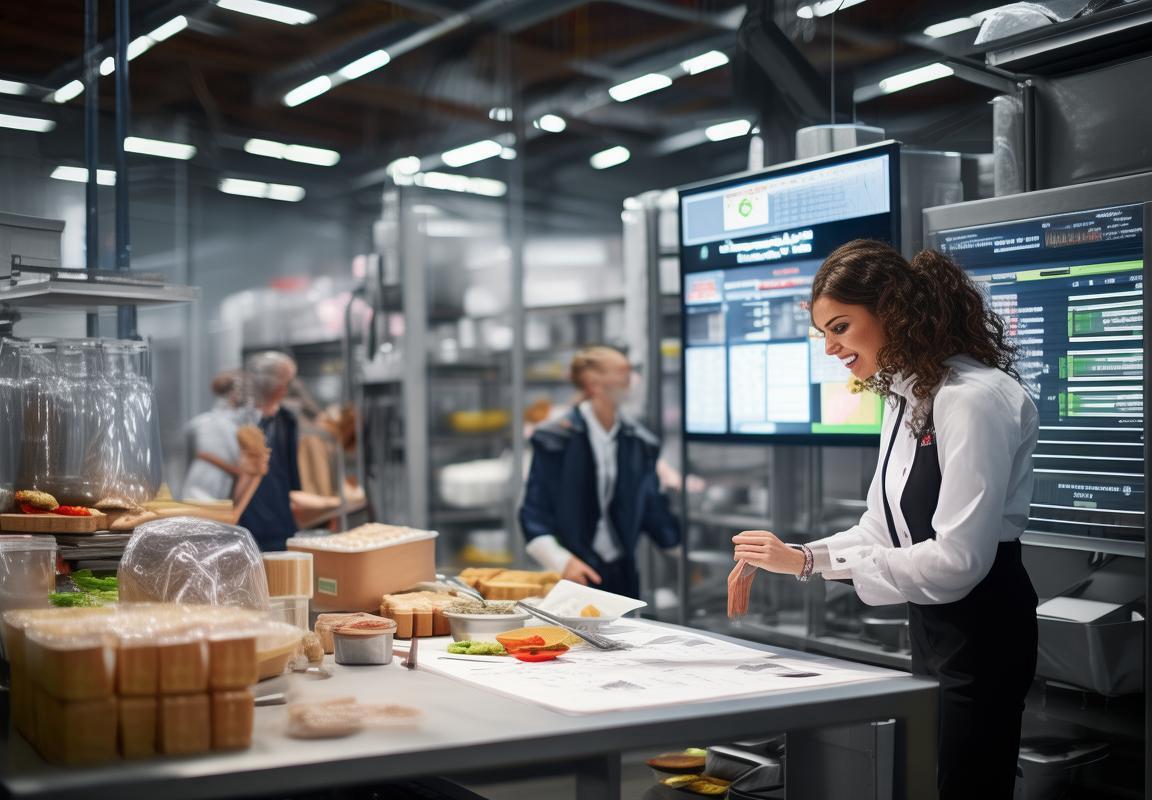
The Logistics of a Large-Scale Catering Equipment Purchase
Navigating the complexities of a large-scale catering equipment purchase requires a keen eye for detail and a strategic approach. Here’s a breakdown of the logistics you’ll need to consider:
The sheer volume of equipment involved in a bulk purchase can be overwhelming. It’s crucial to have a clear inventory list that outlines every piece you need, from ovens and fryers to dishwashers and serving utensils. Ensuring you’ve accounted for every item will prevent any gaps in your inventory and minimize the need for follow-up orders.
Transportation is another critical aspect. Moving a large number of items can be expensive and time-consuming. You’ll need to research reliable transport providers who can handle the logistics of moving your equipment from the supplier to your location. Consider factors like distance, weight, and the condition of the items. Fragile equipment, like glassware or delicate appliances, might require special handling or additional insurance.
Storing your new equipment properly is essential to maintain its integrity and prevent damage. Evaluate your storage space to ensure it can accommodate the new inventory without causing congestion or safety hazards. If storage space is an issue, look into temporary solutions like renting storage units or seeking temporary warehousing options.
Installation and AssemblyOnce the equipment arrives, you’ll need to have a plan in place for installation and assembly. Some items may require professional setup, especially if they’re complex or involve gas lines or plumbing. Ensure that any necessary technicians are scheduled and available to complete these tasks promptly.
Testing and CommissioningAfter installation, it’s vital to test all equipment to ensure it functions correctly. This step is often overlooked but is crucial for safety and efficiency. Test all appliances, from the stove to the coffee machine, to confirm they meet your operational needs and are up to code.
Training StaffWith new equipment comes the need for training. Your staff must be proficient in using the new catering equipment to maintain safety standards and maximize productivity. Develop a comprehensive training program that covers the operation, maintenance, and safety procedures for each piece of equipment.
Maintenance and ServiceRegular maintenance is key to the longevity of your catering equipment. Establish a maintenance schedule that includes routine checks, cleaning, and potential service calls. Consider the cost of maintenance when budgeting for your purchase and factor in the cost of any parts that may need replacing over time.
Insurance and ComplianceEnsure that all your catering equipment is covered by appropriate insurance to protect against accidents or breakdowns. Additionally, verify that all equipment complies with health and safety regulations to avoid fines or legal issues.
DocumentationKeep thorough documentation of your purchase, including invoices, manuals, and maintenance records. This documentation will be invaluable for warranty claims, future upgrades, or if you decide to sell the equipment in the future.
Time ManagementA large-scale purchase requires careful time management. Set clear timelines for each stage of the process, from ordering to delivery, installation, and training. Staying on schedule will help prevent delays and ensure a smooth transition to your new equipment.
Budgeting for ContingenciesAlways budget for unforeseen expenses. Even with the most meticulous planning, there’s always a chance of unexpected costs, whether due to damaged goods, additional service calls, or delays in delivery. Having a contingency fund will help you manage these surprises without derailing your entire project.
By meticulously planning each aspect of a large-scale catering equipment purchase, you can ensure a successful transition to your new inventory, minimizing downtime and setting the stage for efficient operations.
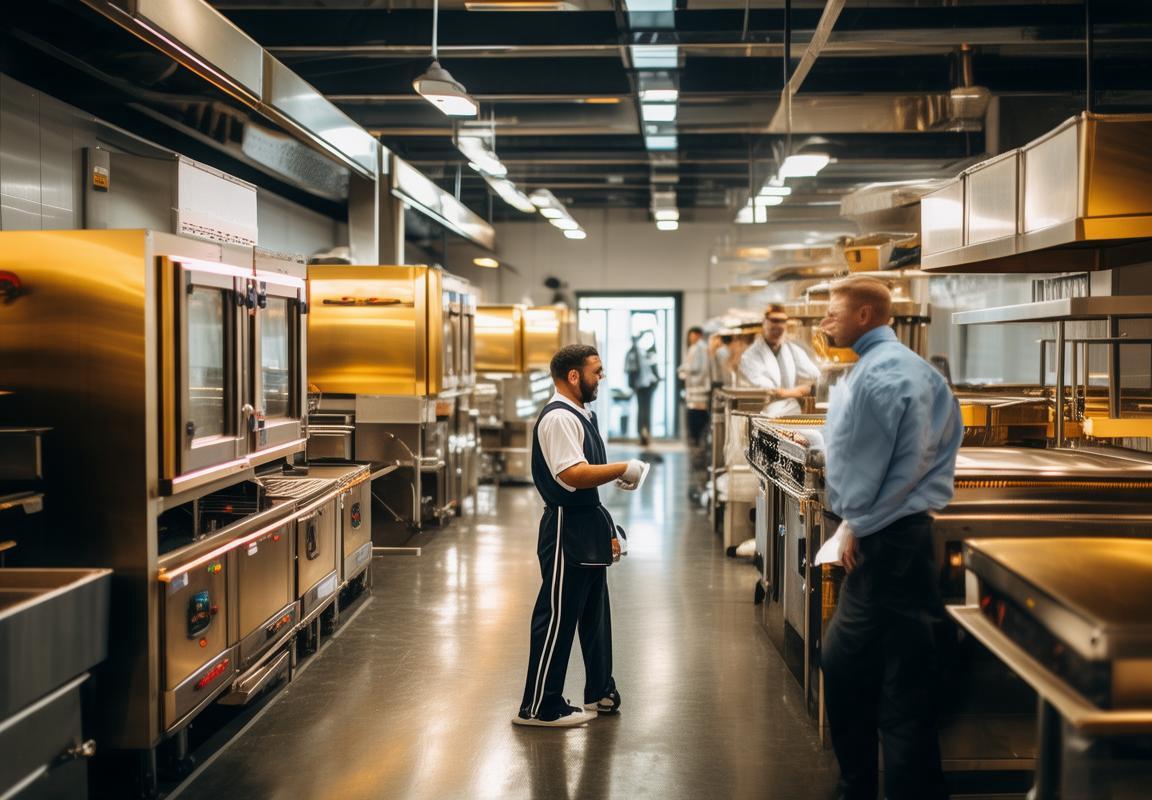
Quality Assurance: Ensuring Longevity and Performance
Navigating the world of catering equipment can be daunting, especially when it comes to ensuring that the gear you invest in will stand the test of time and perform reliably. Here are some key aspects to consider when it comes to quality assurance for your catering equipment:
The Relevance of Brand ReputationWhen purchasing catering equipment in bulk, the brand reputation can be a significant indicator of the quality you can expect. Look for brands that have a solid track record in the industry, as they often invest in research and development to ensure their products meet stringent quality standards. A brand with a good reputation is more likely to offer durable equipment that will withstand heavy use.
Understanding Material SpecificationsThe materials used in the construction of catering equipment can greatly impact its longevity. For instance, stainless steel is a popular choice for its strength and resistance to corrosion. Ensure that the equipment you’re considering is made from high-quality materials that are suitable for the type of foodservice you provide. Aluminum, for example, is excellent for baking and roasting, while cast iron is known for its even heat distribution in cookware.
Regular Maintenance and CleaningQuality equipment is only as good as the care it receives. It’s essential to understand the maintenance requirements of the equipment you’re purchasing. Some items may need frequent cleaning to prevent the buildup of grease and food particles, while others may require specific cleaning agents or tools. A well-maintained piece of equipment can last significantly longer than one that is neglected.
Testing and Trial PeriodsBefore making a bulk purchase, consider whether the supplier offers a trial period or a demonstration. Testing the equipment firsthand can give you peace of mind about its performance. If the supplier is confident in their product, they should be willing to let you try it out before committing to a large order.
Long-Term WarrantiesA robust warranty can be a crucial factor in quality assurance. When you buy catering equipment in bulk, it’s important to have a warranty that covers both parts and labor for an extended period. This not only protects your investment but also ensures that you have support if any issues arise down the line.
Consulting with ExpertsDon’t hesitate to seek advice from industry experts or consultants when evaluating the quality of catering equipment. They can provide valuable insights based on their experience and knowledge of the market. Their expertise can help you make informed decisions about which products are likely to meet your needs.
Customer Reviews and FeedbackReading customer reviews and feedback can offer a wealth of information about the performance and reliability of catering equipment. Look for patterns in the feedback, such as common issues reported by users. While no product is perfect, consistent negative feedback can be a red flag.
Environmental ConsiderationsIn addition to durability and performance, consider the environmental impact of the catering equipment. Some manufacturers use sustainable materials or produce energy-efficient appliances that can reduce your carbon footprint over time. Investing in eco-friendly equipment can be a long-term quality assurance strategy.
Certifications and StandardsLook for equipment that carries relevant certifications and meets industry standards. This can include safety certifications, such as those from Underwriters Laboratories (UL) or the European Conformity (CE) mark, which ensures that the equipment has been tested and meets certain quality criteria.
Training and SupportQuality assurance also extends to the training and support provided by the supplier. Ensure that the supplier offers comprehensive training on how to use and maintain the equipment. Good customer service and support can be invaluable when it comes to troubleshooting and maximizing the lifespan of your catering equipment.
By focusing on these aspects, you can ensure that the catering equipment you purchase in bulk will not only meet your immediate needs but also stand the test of time, providing reliable service for years to come.

How to Integrate New Equipment into Your Operation
Understanding the workflow and efficiency of your catering operation is crucial when integrating new equipment. Here’s how to seamlessly incorporate new gear into your existing setup:
Assess Your Current WorkflowTake a step back and observe how your staff operates currently. Identify the bottlenecks, areas where time is wasted, and processes that could be streamlined. This assessment will help you understand where the new equipment can be most beneficial.
Research CompatibilityBefore purchasing new equipment, ensure it’s compatible with your current setup. Consider factors like power requirements, space constraints, and whether it can integrate with existing systems. Compatibility will prevent future headaches and ensure a smooth transition.
Train Your StaffInvesting in training for your staff is essential. New equipment might come with unique features or require different handling techniques. Organize workshops or hire a professional to educate your team on how to use the new equipment effectively. This will not only enhance productivity but also improve safety.
Plan the Transition StrategicallyTransitioning to new equipment doesn’t happen overnight. Plan the integration carefully. Begin by introducing one piece of equipment at a time to minimize disruptions. This phased approach allows your team to adapt and learn without being overwhelmed.
Evaluate and AdjustAs you introduce new equipment, continuously evaluate its performance and how it fits into your operation. Gather feedback from your staff and customers to understand the impact. Be prepared to make adjustments, whether it’s fine-tuning the equipment or modifying your processes.
Optimize Layout and SpaceConsider the layout of your catering operation when introducing new equipment. Ensure that there is enough space for the equipment to operate efficiently without hindering movement. Sometimes, reconfiguring your space might be necessary to accommodate larger or more complex pieces of equipment.
Leverage TechnologyNew equipment often comes with technological advancements. Take advantage of these to increase efficiency. For example, equipment with smart features can integrate with your management system, providing real-time data that can inform inventory management and planning.
Maintain Regular UpkeepRegular maintenance is key to ensuring the longevity and performance of your new equipment. Establish a schedule for routine checks and repairs. This proactive approach can prevent costly breakdowns and extend the life of your investment.
Monitor Energy EfficiencyEnergy consumption is a significant factor in catering operations. Check if your new equipment is energy-efficient. Not only will this save you money on utility bills, but it’s also environmentally friendly. Look for certifications and labels that indicate energy efficiency.
Stay Informed on Warranties and SupportNew equipment typically comes with a warranty. Familiarize yourself with the terms and conditions. Additionally, ensure that the supplier offers reliable customer support. Should you encounter issues, having access to knowledgeable support can be invaluable.
Integrate with Suppliers and DistributorsBuilding strong relationships with suppliers and distributors can make managing your new equipment easier. They can provide advice, help with troubleshooting, and ensure that you have the right parts and accessories when needed.
Encourage a Culture of Continuous ImprovementCreate an environment where continuous improvement is valued. Encourage your team to suggest ways to enhance the operation with the new equipment. This can lead to innovative solutions and a more efficient catering service.
Document EverythingKeep thorough records of your new equipment, including manuals, maintenance schedules, and any modifications. This documentation will be invaluable for future reference, especially when it comes to warranty claims or equipment upgrades.
By carefully planning and executing the integration of new equipment, you can significantly enhance the performance and longevity of your catering operation. Remember, it’s not just about acquiring the right tools but also about how you use and maintain them.
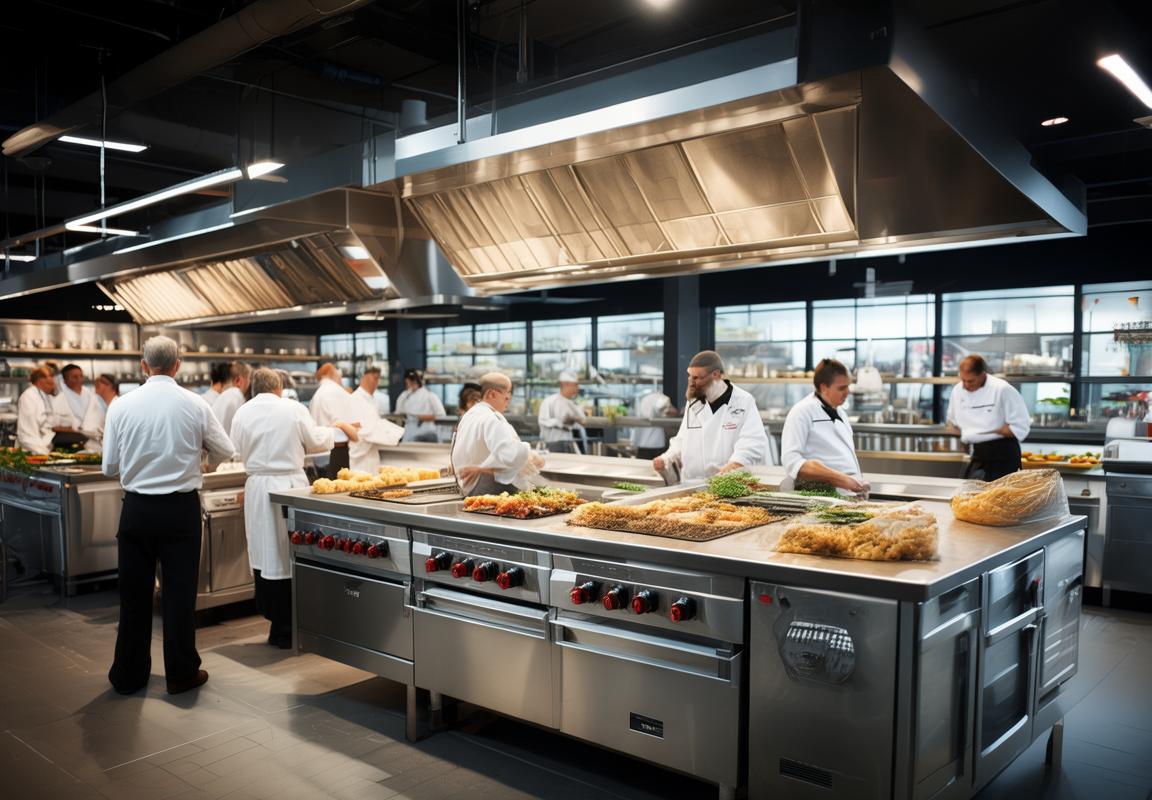
The Environmental Benefits of Buying in Bulk
When you opt for bulk purchasing, the environmental impact can be significant. Here’s how it contributes positively to the environment:
-
Reduced Packaging WasteBulk buying often means less packaging. Instead of individual boxes or containers for each item, you receive a larger quantity in a single package. This reduction in packaging not only cuts down on waste but also decreases the energy and resources used in the production of packaging materials.
-
Lower Carbon FootprintTransporting goods in bulk can be more efficient than shipping multiple small orders. Larger shipments can be optimized for fuel efficiency, which means fewer vehicles on the road and less fuel consumed. This leads to a lower carbon footprint and helps combat climate change.
-
Less Energy ConsumptionManufacturing, packaging, and transporting products individually require more energy. By buying in bulk, you’re essentially consolidating these processes, which can lead to a significant reduction in overall energy consumption.
-
Extended Product LifespanBulk purchases often include items that have a longer shelf life. By reducing the frequency of restocking, you’re less likely to have products that go to waste due to spoilage. This not only saves money but also reduces the environmental impact of producing and disposing of those items.
-
Minimized Landfill UseWhen you buy in bulk, you’re likely purchasing products in larger quantities, which means fewer trips to the store and potentially less packaging. This can lead to a decrease in the amount of waste that ends up in landfills, as well as the resources needed for waste management.
-
Encourages Sustainable PracticesBulk buying can encourage suppliers to adopt more sustainable practices. When there’s a demand for larger quantities, suppliers may look for ways to reduce their environmental impact, such as using recycled materials or optimizing their production processes.
-
Supports Local and Ethical SuppliersBuying in bulk can sometimes mean purchasing from local suppliers, which has its own set of environmental benefits. Local suppliers often have shorter transportation distances, which means less fuel and emissions. Plus, supporting local businesses can help maintain community vitality and reduce the need for long-distance shipping.
-
Water ConservationBulk purchases can also lead to water conservation. For example, buying toilet paper in bulk reduces the number of times you have to replace it, which in turn reduces the water used for cleaning and the energy required to treat and distribute that water.
-
Encourages Responsible Resource UseWhen you buy in bulk, you’re more likely to use products efficiently. This can lead to a reduction in the amount of resources consumed over time, as you’re not frequently purchasing items that contribute to waste or unnecessary consumption.
-
Awareness and AdvocacyBy choosing to buy in bulk, you’re also raising awareness about the environmental impact of consumer choices. This can inspire others to make more sustainable purchasing decisions, leading to broader changes in consumer behavior and environmental policy.
Remember, the environmental benefits of buying in bulk are not just about the immediate action of purchasing. It’s about creating a ripple effect that encourages more sustainable practices throughout the supply chain and in society at large.

Testimonials: Success Stories from Bulk Purchasers
In the realm of catering equipment bulk purchasers, there are numerous success stories that showcase the tangible benefits of such large-scale purchases. Here are a few testimonials that highlight the positive outcomes and experiences of businesses that have taken the leap into bulk buying.
-
“The cost savings were incredible. We were able to invest in higher-quality equipment than we ever thought possible due to the volume discounts we received. It’s been a game-changer for our business.”
-
“Our inventory management has become so much more efficient since we started buying in bulk. We no longer have to worry about running out of key items, and the streamlined process has saved us time and headaches.”
-
“The consistency in quality across our entire inventory is something we’ve never experienced before. Our customers can expect the same high standards with every order, which has significantly improved our reputation.”
-
“We were hesitant at first, but the supplier’s track record spoke volumes. They’ve been in the industry for decades, and their commitment to customer satisfaction is unwavering. It’s reassuring to know we’re partnering with experts.”
-
“The bulk purchase was more than just a financial decision; it was a strategic move for our growth. We’ve been able to expand our service offerings and take on larger events because we have the capacity to handle them.”
-
“Our team was initially skeptical about the transition, but once they saw how much easier and quicker the new equipment made our processes, they were all on board. It’s been a morale booster for everyone.”
-
“We were looking to reduce our carbon footprint, and buying in bulk allowed us to source sustainable and eco-friendly equipment. It’s not just about the bottom line; it’s about being responsible business leaders.”
-
“The support we received from our supplier was exceptional. They didn’t just sell us the equipment; they provided training and ongoing support to ensure we were getting the most out of our purchase.”
-
“The return on investment has been fantastic. We’ve recouped our costs multiple times over by eliminating waste and reducing labor. It’s a no-brainer for any business looking to cut costs and increase productivity.”
-
“Our customers have noticed the difference in the quality of our service, and we’ve received several testimonials praising our efficiency and attention to detail. It’s clear that bulk purchasing has paid off in more ways than one.”
These testimonials reflect the diverse range of benefits that bulk purchasing catering equipment can bring to a business. From significant cost savings and improved efficiency to enhanced product quality and environmental responsibility, the stories of successful bulk purchasers underscore the value of this strategic approach to sourcing equipment.
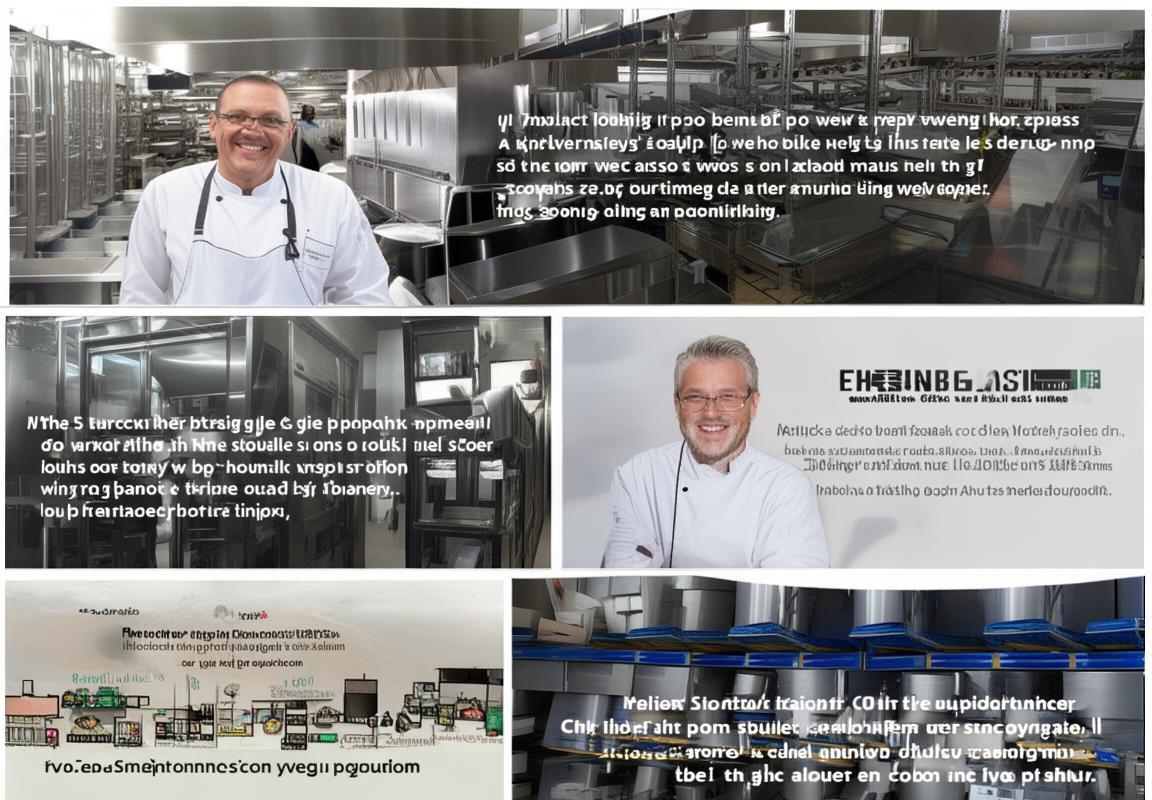
Conclusion: Why Bulk Purchasing is a Smart Move for Your Business
Bulk purchasing can be a game-changer for businesses looking to streamline their operations and reduce costs. It’s not just about getting a good deal; it’s about strategic planning, efficient logistics, and long-term savings. Let’s delve into why it’s a smart move for your business.
-
Economies of Scale: The Power of NumbersWhen you buy in bulk, you’re essentially leveraging the power of numbers. Vendors often offer significant discounts for larger orders, which can lead to substantial savings. This is because the cost per unit decreases as the quantity increases, a concept known as economies of scale.
-
Streamlined Inventory ManagementMaintaining a well-organized inventory is crucial for any business. Bulk purchasing can help you keep your stock levels balanced. With a larger purchase, you can ensure that you have enough supplies on hand without the risk of overstocking or running out, which can disrupt your operations.
-
Long-Term Cost SavingsWhile the initial outlay for bulk purchases might be higher, the long-term savings can be substantial. Over time, the cost per unit decreases, and you avoid the expenses associated with frequent restocking, such as shipping and handling fees.
-
Enhanced Supplier RelationshipsBuilding a strong relationship with a supplier can lead to better deals and more personalized service. When you commit to a bulk purchase, suppliers are more likely to offer exclusive discounts, extended payment terms, or even priority service, which can be invaluable for your business.
-
Improved Cash FlowBulk purchasing can help improve your cash flow. By locking in prices for a larger quantity, you can better predict and manage your expenses. This can prevent unexpected spikes in costs and ensure that you have the necessary funds to invest in other areas of your business.
-
Quality Control and ConsistencyWhen you purchase in bulk from a reputable supplier, you can often ensure a consistent quality of products. This is particularly important for catering equipment, where reliability is key. A reliable supplier will provide you with the same quality of products each time, reducing the risk of equipment failure or subpar performance.
-
Time EfficiencyOrdering in bulk can save you time. Instead of placing multiple orders for smaller quantities, you can handle everything in one go. This can be especially beneficial for businesses with tight schedules or those that need to focus on other critical tasks.
-
Reduced Packaging WasteBuying in bulk often means less packaging. With smaller orders, you might receive items individually packaged, which can generate more waste. Bulk purchases typically involve fewer boxes and bags, contributing to a more sustainable business practice.
-
Customization and Special OrdersSome suppliers are willing to offer customization or special orders for bulk purchasers. This can be particularly useful if you have specific requirements for your catering equipment, such as non-standard sizes or specialized features.
-
Flexibility and ScalabilityAs your business grows, so does your need for more equipment. Bulk purchasing can provide you with the flexibility to scale up your operations without the hassle of finding new suppliers or dealing with the complexities of small-scale orders.
-
Market Trends and ForecastingBy purchasing in bulk, you can also stay ahead of market trends. You can invest in popular items before they become mainstream, ensuring that your business is always equipped with the latest and greatest tools.
-
Testimonials and Case StudiesListening to the experiences of other bulk purchasers can be incredibly insightful. Their success stories can provide you with the confidence to make the leap into bulk purchasing and the knowledge to navigate potential challenges.
In conclusion, bulk purchasing is a smart move for your business because it offers a multitude of benefits, from cost savings and improved cash flow to better supplier relationships and enhanced operational efficiency. It’s a strategic approach that can lead to long-term growth and success.